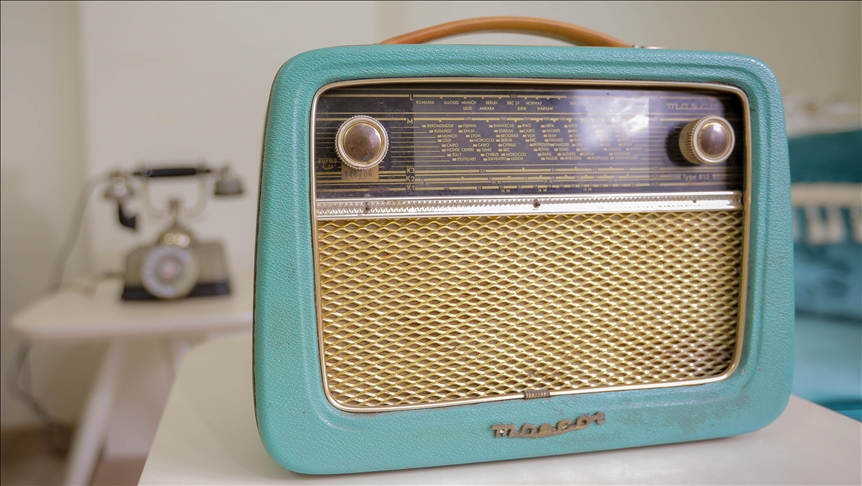
ANKARA
Radio, which offers a wide range of broadcast services to the community with its content such as education, communication, entertainment and advertising, continues to exist strongly by adapting to technological advancements.
The radio, invented in the late 19th century, allowed people to access news during the world wars and consequently boosted its popularity.
With the emergence of internet radio, podcasts, smartphones and new technologies, radio adapts to people's lifestyles and behaviors and continues to exist more strongly on a global level.
Owing to its low cost and easier accessibility, radio is recognized as one of the most popular and effective means of communication. As such, it is preferred by an overwhelming majority of the people living in developing countries.
During the pandemic, radio has helped citizens of developing countries to access credible health news that contributed to saving lives.
It is estimated that over 44,000 radio stations are present across the world. In Africa, where the radio is the most popular means of communication, there are more radio stations than newspapers or television stations.
Even in developed countries, it is still popular. Only in the US, some 11,000 radio stations are subscribed by different segments of society.
In Turkey, radio broadcasting started on May 6, 1927.
The average radio listening time in Turkey is 103 minutes, according to the Turkish Radio and Television Supreme Council (RTUK), the country’s broadcasting authority.
The age group that listens to radio most is 55 and above. The people in western and central parts of Turkey are the ones who listen to the radio most.
In 2011, UNESCO established February 13 as World Radio Day. This year's theme is 'New World, New Radio,' which refers to radio's central role in world’s past and future.
* Writing by Ahmet Gencturk








